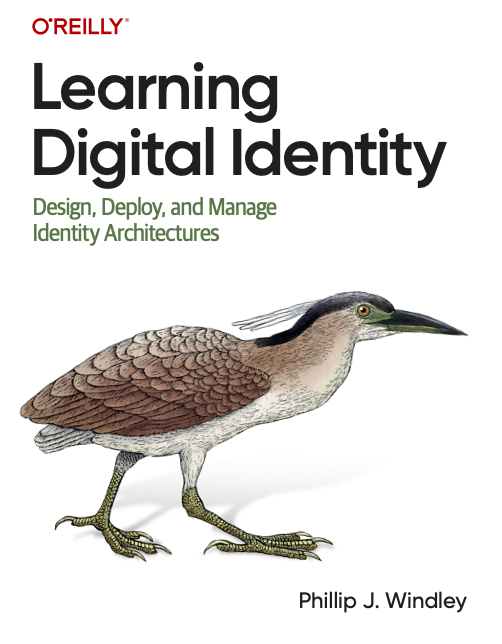Summary
I've had a busy month. Something had to drop and it was regular updates here. Technological change is messy and hard to predict. Still we can look at the direction in which digital identity is evolving to get an idea what's coming—even if we can't predict the timing.
Riley Hughes and I recently had a conversation about the question "why doesn't SSI exist already?" Sometimes the question is asked because people think it's such a natural idea that it's surprising that it's not the norm. Other times, the question is really a statement "if this were really a good idea, it would exist already!" Regardless of which way it's asked, the answer is interesting since it's more about the way technology develops and is adopted than the technology itself.
Riley calls identity products "extremely objectionable" meaning that there are plenty of reasons for people to object to them including vendor lock-in, privacy concerns, security concerns, and consumer sentiment. I think he's right. You're not asking people and companies to try a new app (that they can easily discard if it doesn't provide value). You're asking them to change the fundamental means that they use to form, manage, and use online relationships.

The last chapter of my new book, Learning Digital Identity, makes a case that there is an existing identity metasystem that I label the Social Login (SL) metasystem. The SL metasystem is supported by OpenID Connect and the various "login in with..." identity providers. The SL metasystem is widely used and has provided significant value to the online world.
There is also an emerging Self-Sovereign Identity (SSI) metasystem based on DIDs and verifiable credentials. I evaluate each in terms of Kim Cameron’s Laws of Identity. In this evaluation, the SL metasystem comes out pretty good. I believe this accounts for much of its success. But it fails in some key areas like not supporting directed (meaning not public) identifiers. As a result of these failings, SLM has not been universally adoptable. Banks, for example, aren’t going to use Google Signin for a number of reasons.
The SSI Metasystem, on the other hand, meets all of Cameron’s Laws. Consequently, I think it will eventually be widely adopted and gradually replace the SL metasystem. The key word being eventually. The pace of technological change leads us to expect that change will happen very quickly. Some things (like the latest hot social media app) seem to happen overnight. But infrastructural change, especially when it requires throwing out old mental models about how things should work is much slower. The fact is, we’ve been building toward the ideas in SSI (not necessarily the specific tech) for several decades. Work at IIW on user-centric identity led to the SL metasystem. But the predominant mental model of that metasystem didn't change much from the one-off centralized accounts people used before. You still get an account administrated by the relying party, they've just outsourced the authentication to someone else. (Which means another party is intermediating the relationship). Overcoming that mental model, especially with entrenched interests, is a long slog.
In the 80s and 90s (pre-web) people were only online through the grace of their institution (university or company). So, I was windley@cs.ucdavis.edu and there was no reason to be anything else. When the web hit, I needed to be represented (have an account) in dozens or hundreds of places with whom I no longer had a long term relationship (like employee or student). So, we moved the idea of an account from workstation operating systems to the online service. And became Sybill.
When Kim first introduced the Laws of Identity, I literally didn’t understand what he as saying. I understood the words but not the ideas. Certainly not the ramifications. I don’t think many did. He’s the first person I know who understood the problems and set out a coherent set of principles to solve them. We used Infocards in our product at Kynetx and they worked pretty well. But because of how they were rolled out, people came to associate them strictly with Microsoft. The SL metasystem won o, offering the benefits of federation, without requiring that people, developers, or companies change their mental model.
Changing metasystems isn't a matter of technology. It's a social phenomenon. Consequently it's slow and messy. Here's my answer to the question "why doesn't this exist yet?": The arc of development for digital identity systems has been bending toward user-controlled, decentralized digital identity for decades. That doesn't mean that SSI, as currently envisioned, is inevitable. Just that something like it, that better complies with Kim's laws than the current metasystem, is coming. Maybe a year from now. Maybe a decade. No one can say. But it's coming. Plan and work accordingly.




